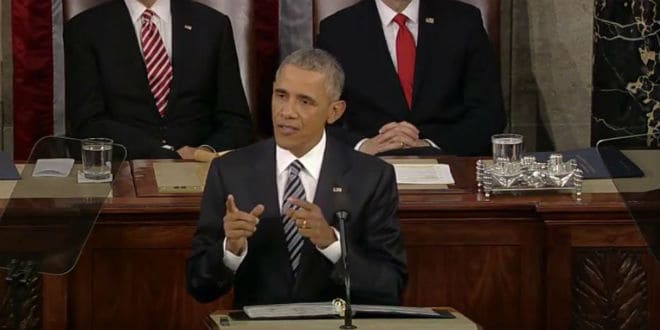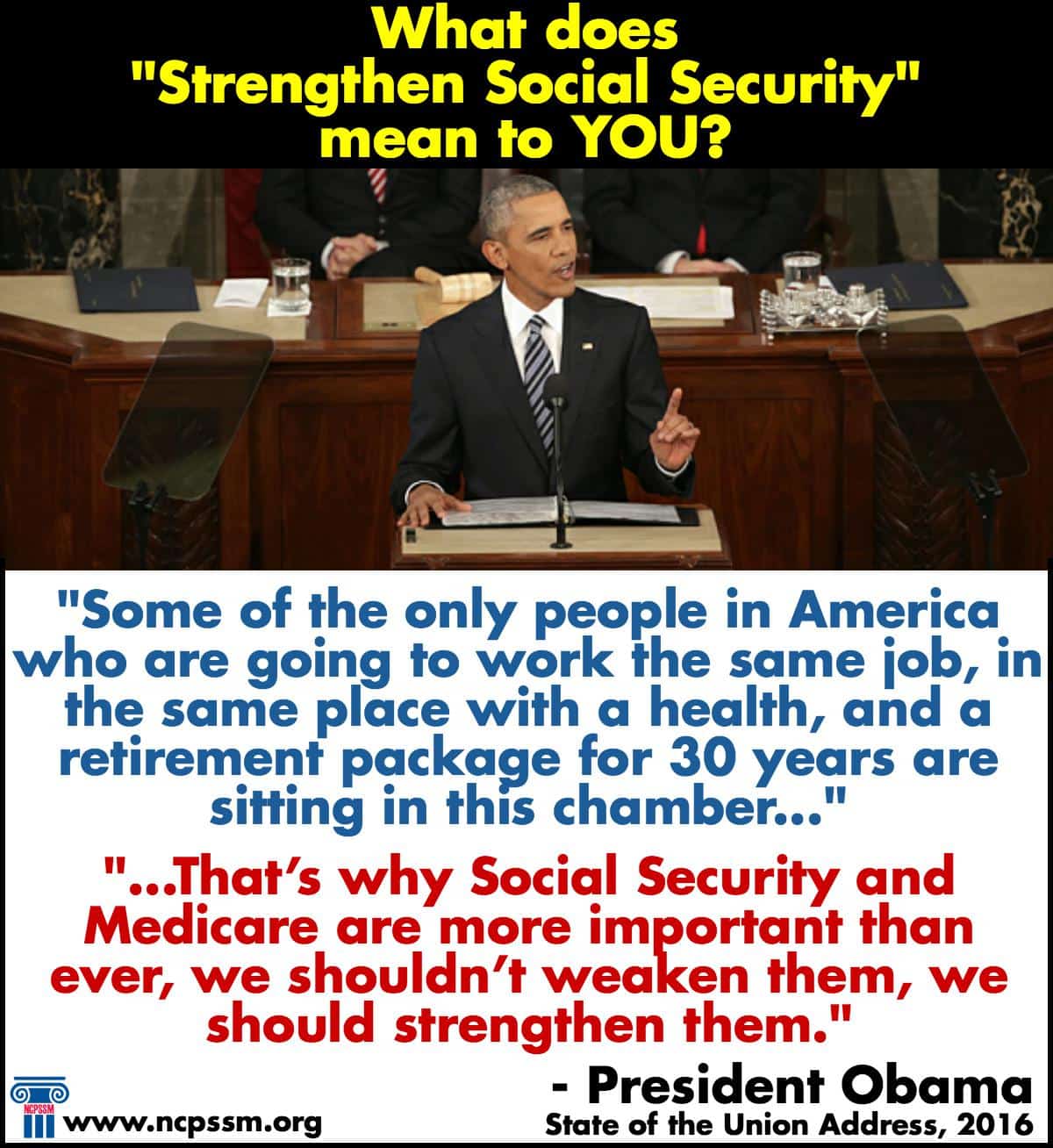
You don’t have to agree with his politics to acknowledge that President Obama’s final State of the Union address was, as promised, an aspirational and ambitious look forward. The New York Times summed it up this way:
“In a prime-time televised speech that avoided the usual litany of policy prescriptions, Mr. Obama used his final State of the Union address to paint a hopeful portrait of the nation after seven years of his leadership, with a resurgent economy and better standing in the world despite inequality at home and terrorism abroad.
He acknowledged that many Americans feel frightened and shut out of a political and economic system they view as rigged against their interests, even as he offered an implicit rebuke of Republicans who are playing on those insecurities in the race to succeed him.
‘As frustration grows, there will be voices urging us to fall back into tribes, to scapegoat fellow citizens who don’t look like us, or pray like us, or vote like we do, or share the same background,’ Mr. Obama said. ‘We can’t afford to go down that path.’ “
In a sweeping speech that touched on issues as diverse as curing cancer to fighting ISIS, retirement security played a small role. However, it did provide the President an opportunity to deliver one of his best one-liners of the night:
“After all, it’s not much of a stretch to say that some of the only people in America who are going to work the same job, in the same place, with a health and retirement package, for 30 years, are sitting in this chamber. For everyone else, especially folks in their forties and fifties, saving for retirement or bouncing back from job loss has gotten a lot tougher.
That’s why Social Security and Medicare are more important than ever; we shouldn’t weaken them, we should strengthen them.”
American families know first-hand what this looming retirement crisis feels like. About half of households age 55 and older have no retirement savings and a third of current workers aged 55 to 64 are likely to be poor or near-poor in retirement. Unfortunately, the median retirement account balance is a puny $3,000 for all working-age households and $12,000 for near-retirement households.
However, just as with the climate change debate, many conservatives continue to deny the retirement crisis even exists. This too often used head-in-the-sand political approach led the President to challenge his Congressional audience:
“How do we reignite that spirit of innovation to meet our biggest challenges?
Sixty years ago, when the Russians beat us into space, we didn’t deny Sputnik was up there. We didn’t argue about the science, or shrink our research and development budget. We built a space program almost overnight, and twelve years later, we were walking on the moon.”
Undoubtedly, acknowledging the economic challenges facing average Americans has to be the first step to find solutions; however, equally important is for citizens to hold their elected officials accountable for saying what they mean and meaning what they say. Too often, candidates promise to “strengthen” Social Security while on the campaign trail when, in truth, they actually support plans to slash benefits. They promise to protect Social Security and Medicare while actually planning to privatize them.
What does the candidate asking for your vote really mean when he/she promises to “strengthen” Social Security and Medicare? For the majority of Americans of all political parties, strengthen means no cuts to benefits. A growing movement also supports boosting benefits; however, voters can’t assume the same of candidates on the campaign trail in 2016.
So, our challenge to all voters is to ask each and every candidate who hopes to come to Washington,“What are your true plans to strengthen Social Security?”



